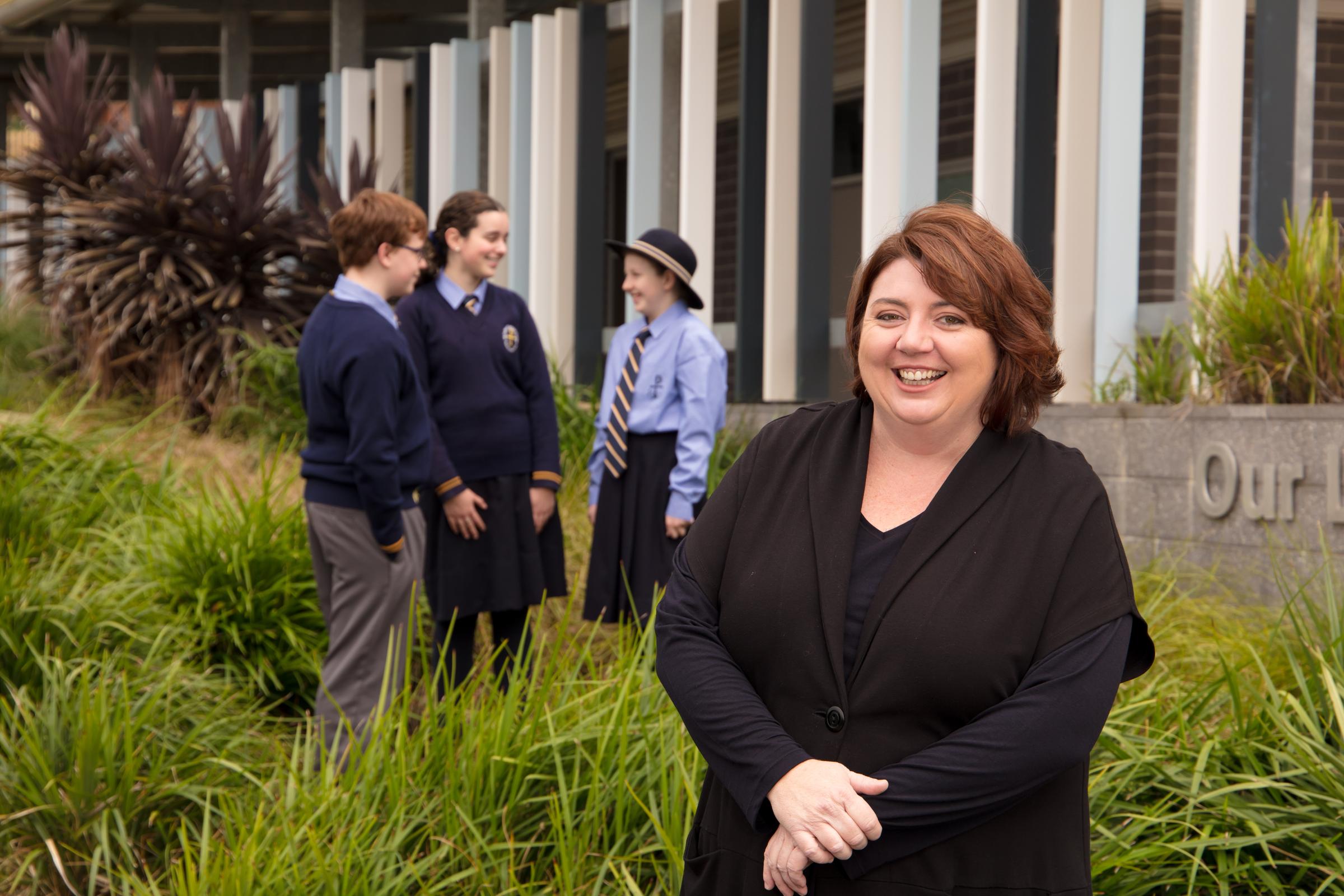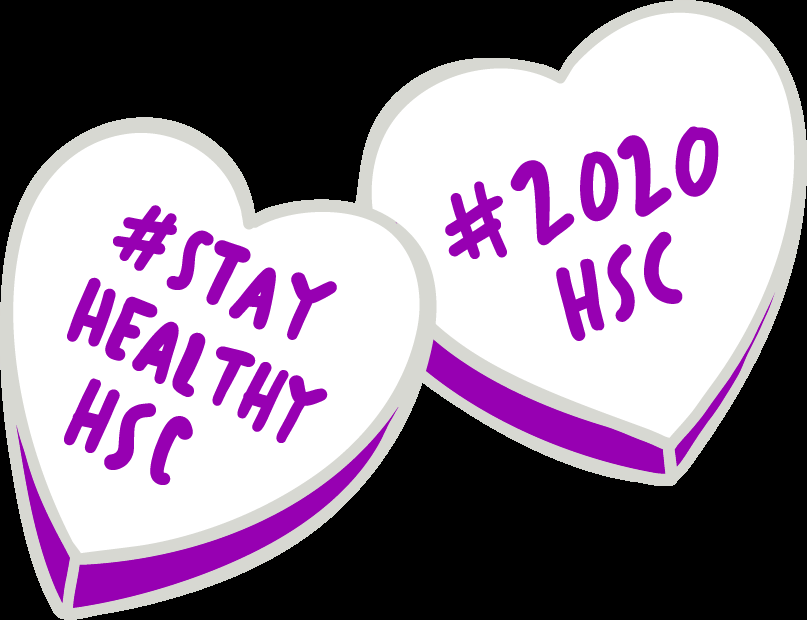Leader of Teaching & Learning

Year 12 Trial HSC
The Year 12 Trial HSC Timetable has been emailed to all students along with the Instructions for Examinations and useful support materials from NESA. Examinations will take place in Week 5 and 6 of this term with students returning to school on the 31 August 2020.
All students must attend their exam at the published time. In the event of illness, it is essential to phone the College before an exam, a medical certificate must be provided when returning to school and an Application for Consideration of an Assessment Task (blue form) filled in and submitted to Mrs Maxworthy.
Year 12 students made every effort to take the opportunity to revise over the break, thanks to the generosity of teachers who hosted study sessions and were available online. The Trial examination is a significant proportion of the final school based assessment mark. A reminder to students that it is never too late to study and preparing well is an antidote to stress.
Fittingly, the ‘hashtag’ for this year on NESA socials is #2020HSC and #StayHealthyHSC. It is an unprecedented year! I extend to all Year 12 students our best wishes for these examinations.
Year 10 HSC Minimum Standards Testing
The HSC Minimum Standards are tests designed to ensure all students have the requisite literacy and numeracy skills to function effectively in society.
Students have had access to sample questions and demonstration tests distributed last Semester and can continue to access the resources by following this link:
https://educationstandards.nsw.edu.au/wps/portal/nesa/11-12/hsc/hsc-minimum-standard/online-tests
Dates for testing:
- Reading Test Wednesday 5 August 2020 Period 2 Hall
- Writing Test Wednesday 5 August 2020 Period 4 Hall
- Numeracy Test Tuesday 11 August 2020 Period 3 Classrooms
Information for parents about the tests can be viewed in this short clip published by NESA:
Results will be sent to students via their Students Online Accounts and students will receive an email with a reminder how to activate this account if they have not already done so.
Year 10 Subject Selection for Year 11 2021
Year 10 students have spent time with Mrs Barrett considering career choices and engaging with a range of digital tools and quizzes designed to stimulate their investigations of possible pathways.
Students will be selecting their subjects for Year 11 2021 this term. Students will have the chance to rotate through a series of talks from Leaders of Learning during school. Parents and students in Year 10 will be sent a link recording of our Subject Selection Information Session in Week 3, including a PDF copy of the Course Selection Guide Stage 6 which outlines our course offerings in 2021. Regrettably, due to restrictions for COVID-19, this year we are unable to host the evening on site.
This is an opportunity to hear about the requirements of both Year 11 and Year 12 and to make some important decisions about entering senior school. It is a time to ask questions, find out factual information and make confident choices that will enable further study and pathways post school. For many students choosing a broad range of subjects that they enjoy and are interested in, is the key to senior success.
Any student interested in Vocational Training: TVET courses or School Based Apprenticeships and Traineeships should seek information from Mrs Kellahan immediately as there are timeframes that need to be met with School and TAFE application processes.
Skills and Thrills Digital Parents Showcase
The Skills and Thrills Digital Parents Showcase is an engaging and informative 20 minute video created to highlight Vocational Education and Training (VET) and the success stories that emanate from VET pathways. The Digital Parents Showcase will help parents better understand vocational pathways, including apprenticeships/traineeships and school-based apprenticeships/traineeships, and gives parents the knowledge they need to help their children make informed career choices post high school. SkillsOne has created a free video that parents can access to learn about the following;
- Apprenticeships and Traineeships
- TAFE/ Private Training Providers
- Industry trends
- COVID-19 impacts on industry
- Funding options available (Smart and Skilled)
- Vocational Education and Training (VET) Options: School -delivered VET, SBATs and EVET
- Where to find information
- Resources and support services
Supporting this video, SkillsOne will be holding a live streamed Q&A panel discussion on the SkillsOne Facebook page on 26 August 2020. Industry and education professionals will be available to answer parents’ pre-submitted questions.
How parents can access the content:
- Content will only be available for a four week period from 10 August to 4 September 2020. Content cannot be downloaded or saved, so must be watched during this time.
- To participate, parents need to pre-register their interest to receive viewing information and updates at https://www.skillsone.com.au/
- Content will be free for parents
- Live Q&A Panel discussion on 26 August (evening) on SkillsOne Facebook Parents can pre-submit any questions to do with careers/ industry to info@skillsone.com.au
Please find attached further information:
Multi-tasking? Myth or reality? It all depends on who you talk to…
Ask any student and they will tell you they can multi-task with ease. Do homework, watch TV, listen to music and check their phone all at the same time, no problem. Ask the academic researchers though and a different story emerges.
Dr Larry Rosen, Professor of Psychology at California State University, explains that what is actually occurring in this ‘multi-tasking’ is ‘task-switching’. Instead of doing two things at once, students are actually switching their focus from one task to another and back again, in a parallel fashion, at high speed, resulting in them staying on task for an average of only 65% of the time period and for a maximum of only 3-5 minutes at a time. Constant task-switching results in it taking much longer to complete the individual tasks not just due to the interruptions, but also because there are delays as the brain switches between tasks and refocuses. This brief bottleneck in the prefrontal cortex delays the start of the next task and the more intense the distraction, the longer it will take the brain to react.
A study conducted by Dr Rosen’s team sent varying numbers of text messages to students in a lecture then tested the students on the content of the lecture. The results were surprising, it was not the number of interruptions that negatively impacted results, it was the time taken by the students to react to the interruptions. Students who responded immediately performed worst on the tests. Those who considered when to check the message and respond (ie in a part of a lecture they deemed less relevant) performed significantly better.
What we can learn from this is that students need to become more aware of their ‘task-switching’ and make conscious decisions as to when they choose to shift their focus – instead of being enslaved by their technology and at its constant beck and call. We need to teach students that this constant mental task-shifting (even thinking about the technology has the same effect as actually checking the technology) takes oxygen and brain activity away from what they are learning. We need to convince our students that it is ok and even necessary to wait, that they don’t have to respond immediately and do have the ability to delay their check-in with the cyber world. It is all about learning that we can control our selective attention and choose to ignore distractions.
We need to train the brain to stop thinking constantly about technology. However, resistance for too long can create anxiety and a fear of missing out, creating ‘continuous partial attention’ in students as oxygen is diverted to activate and maintain thoughts about social media at the expense of classroom material.
Dr Rosen’s team has determined the best approach for students who find it difficult to pull back from their technology devices is to set an alarm on their phone for short regular ‘tech breaks’. They may start with 15 minutes and gradually increase this amount over time to around 30 minutes. The phone will be face down on their desk on silent mode or off, and when the alarm rings they let themselves check messages and status updates for a minute or two, then set the alarm again. Dr Rosen’s studies found that knowing they can check in 15 minutes creates less anxiety, whereas depriving them of the phone completely did not stop them thinking or obsessing about possible e-communications which took away from their ability to focus fully on their homework. It all comes back to teaching the concept of focus.
Finally, Dr Rosen argues that we cannot simply remove technology and other distractions; they are too intricately woven into students' daily lives. Instead students should learn metacognitive skills to help them understand when and how to switch their attention between multiple tasks or technologies.
Visit the Dealing with Distractions unit at www.studyskillshandbook.com.au to learn more about managing your distractions.
Our College's subscription details are:
Username: mccarthycc
Password: 77success
Mrs Raelene Maxworthy - Leader of Teaching & Learning


